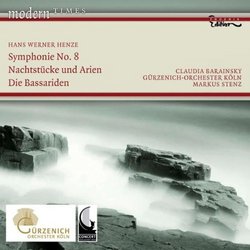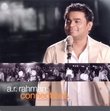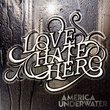| All Artists: Claudia Barainsky Title: Henze: Symphonie No. 8; Nachtstucke und Arien Members Wishing: 1 Total Copies: 0 Label: Phoenix Edition Original Release Date: 1/1/2008 Re-Release Date: 8/26/2008 Genres: Pop, Classical Styles: Vocal Pop, Opera & Classical Vocal, Historical Periods, Modern, 20th, & 21st Century, Symphonies Number of Discs: 1 SwapaCD Credits: 1 UPC: 811691011134 |
Search - Claudia Barainsky :: Henze: Symphonie No. 8; Nachtstucke und Arien
CD DetailsSimilar CDs
|
CD ReviewsModernist masterworks Dean R. Brierly | Studio City, CA | 10/17/2008 (5 out of 5 stars) "One of the reasons I so admire Hans Werner Henze is that he is one of the least dogmatic of postwar composers. As fiercely modern as any of his contemporaries (i.e., Boulez, Nono), Henze has never succumbed to rote formulas, nor been afraid to embrace lush tonalities and textures. The three orchestral works on this disc provide ample evidence of his chameleon-like ability to synthesize seemingly disparate movements (neo-classicism, twelve-tone technique, serialism) into beguiling musical tapestries uniquely his own. First up is Henze's "Adagio, Fuge and Mänadentanz," a musical suite based on his opera "Die Bassariden," in which Henze wields massed symphonic forces to stunning effect. Extended string passages full of dark expressionistic corners are contrasted with moments of violent uplift that tread a fine line between dissonance and tonality. Breathtaking stuff. "Nachtstücke und Arien" (Nocturnes and Arias) is another highly atmospheric work, a four-movement suite comprised of instrumental and vocal pieces. The nocturnes are lush tone poems imbued with a nervous and at times aggressive lyricism. The arias, gloriously interpreted by soprano Claudia Barainsky, are unashamedly romantic in their evocation of longing and loss. Henze indulges his taste for grand theatrical effects in his "Sinfonia No. 8" (fittingly, as it's inspired by Shakespeare's "A Midsummer Night's Dream). Furiously paced, densely textured and darkly eloquent, the piece can be seen as an encapsulation of Henze's all-inclusive aesthetic. The music projects an almost overpowering scope that doesn't, however, inhibit its staggering range of emotional expression." Absolutely great orchestral Henze! R. Hutchinson | a world ruled by fossil fuels and fossil minds | 01/19/2009 (5 out of 5 stars) "The immediate appeal of this disc (which mysteriously appeared on Capriccio, then vanished only to reappear as a Phoenix Editions release...) was the Symphony No. 8. I had heard both the Symphony No. 7, one of Henze's masterpieces, and the elusive Symphony No. 9 for mixed choir and orchestra (a 1998 EMI release which seemed to immediately become unavailable), "dedicated to the heroes and martyrs of German anti-fascism," also fantastic (both are now available on this EMI 20th Century Classics 2-disc set, so of course the first recording of the 8th was a must. But while excellent, it turns out that it is surpassed by the other orchestral works here. All three are performed by the Gurzenich-Orchester Koln, led by Markus Steinz.
The first piece is an orchestral suite from one of Henze's most acclaimed operas, Die Bassariden, first performed in 1966. Henze only created this suite recently -- it was first performed in 2005 in Hamburg. The symphonic sweep partly reflects the fact that "Die Bassariden" has a four-movement symphonic structure, but much of the energy of course carries the dramatic arch of the story, the conflict between reason and emotion embodied in the fight between the ascetic King Pentheus of Thebes and the god Dionysus and his followers. Perhaps the best of the three pieces is "Nachtstucke und Arien," (Night Pieces and Arias), which features the stunning soprano of Claudia Barainsky in the second and fourth movements. The lyrics include the line "the earth does not wish to carry a mushroom of smoke," a statement against nuclear weapons and war. At its premiere on October 20, 1957 at the Donaueschingen Festival, Henze's ostensible comrades of the avant-garde Boulez, Stockhausen and Nono walked out as soon as the lyrical and partially tonal (!!!) piece began. Symphony No. 8 sets to three movements Shakespeare's "Midsummer Night's Dream." As you might expect, it is a lighter work than Symphonies 7 and 9, full of impish energy. Delightful if you're in the mood, it showcases Henze's facility with musical form that runs all the way back to Haydn and Mozart, and is certainly nothing likely to alienate those fearful of 20th century music. In the liner notes (by Thomas Schulz) we find these quotes from Henze: "From the start, I had this ardent desire for a full and wild melodiousness." "I'm interested in music to reproduce moods, atmospheres, states of being. I don't want any completely wrapped up packets of music." Henze left Germany in 1953, at 27, for Italy, where he has lived ever since. He said he chose to "live and work independently of other people's decrees and dogmas." So he uses chromaticism or tonality as he sees fit, he knows his way around a 12-tone row but does not use them exclusively, he sees himself as combining north German polyphony and Italian lyricism (to paraphrase another well-known quote). This is a great disc, a perfect introduction to Hans Werner Henze for the curious, and an important addition to his discography for admirers of his work. Clearly one of the great living composers, and one who should be more widely heard here in America! " |





